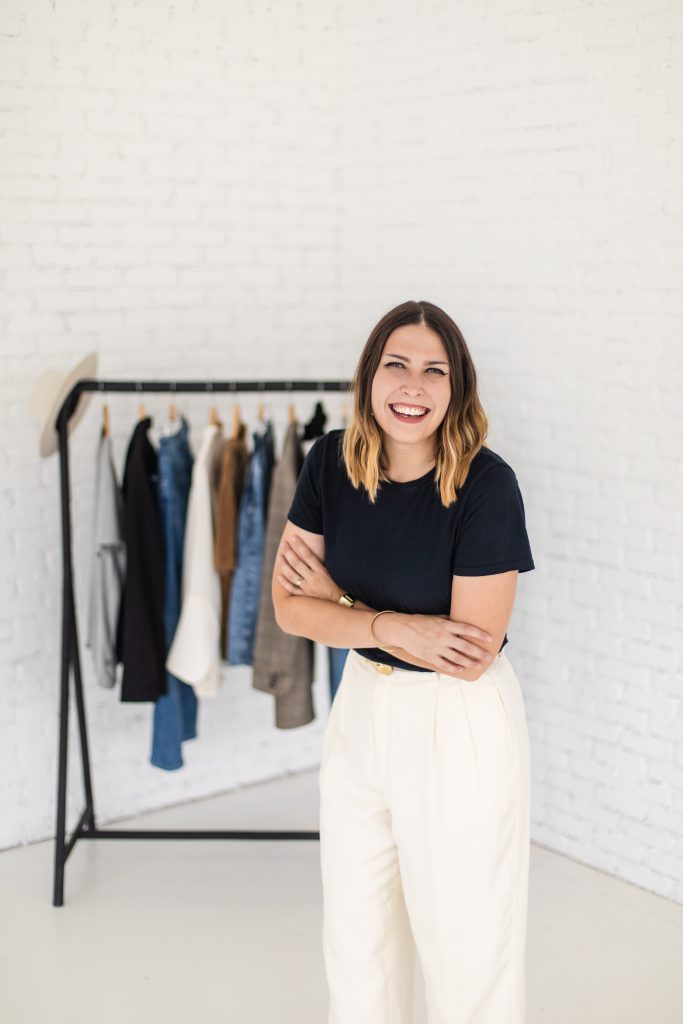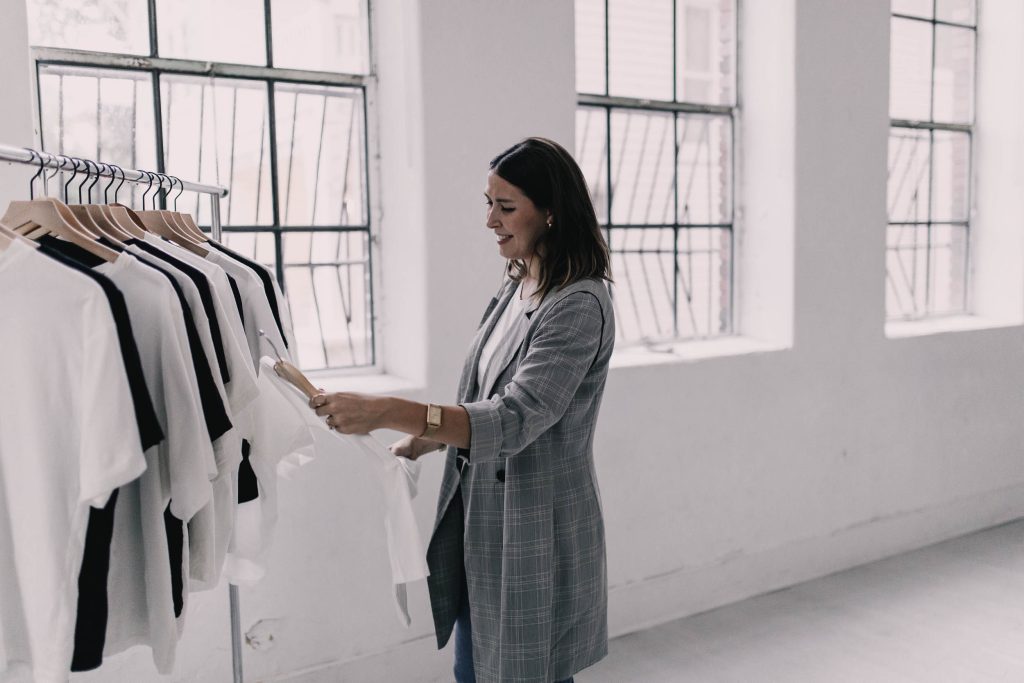Restoring Dignity
Throughout her adolescence, Meghan Forest Farmer stayed up to date with fashion trends, not as a means of touting her fashionista clout but rather as a way of helping her friends or perfect strangers find their own voice through personalized clothing.

Meghan’s interest in fashion “started when I was in middle school,” she recalled. “I was fascinated by how people dressed. I started picking up fashion magazines. One year at summer camp, all the girls wanted to dress cutely. We were talking and trying to figure out what to wear. I realized I can help people decide what to wear. I liked helping people.”
The founder of The Bright Factory, a new clothing manufacturing factory, finally found her niche in the garment industry. By the spring of 2023, her Fort Worth-based startup will begin fabricating T-shirts for distribution here and across the country. The materials will be ethically sourced, and The Bright Factory will be staffed by formerly incarcerated women.

photo credit: Kylie Butler of Focused Creative Photography
Meghan’s journey to becoming a mission-minded entrepreneur began in the mainstream fashion world. After graduating in 2014 from the University of North Texas with a degree in fashion merchandising, the aspiring stylist — a job that entails curating clothing for models — interned for Dallas-based stylist Jeanette Chivvis.
“I started to work for her as an intern and then assistant,” Meghan recalled. “That job trained me on how commercials and fashion shows work and how to work with models. It was a fun experience.”
Her next job was as a stylist for Neiman Marcus, where she worked until 2019 before working as a freelance stylist.
“It was a corporate environment,” she said. “There were certain rules to follow, like never blending competing brands. The end photos had to go on a website.”
In 2019, Meghan learned about the 2013 Rana Plaza disaster. An eight-story garment factory collapsed, killing 1,134 people. The deadly collapse and subsequent news that basic safety protocols were blatantly ignored brought the working conditions of clothing factories to international attention. Meghan said the tragedy prompted her to buy clothes solely from businesses that offered employees a safe working environment and livable wages.
“I had already seen some of the not-so-good parts [of the clothing industry],” she said. “The clothes that I was purchasing at Target contributed to [those types of tragedies]. I couldn’t turn a blind eye. I changed the way I shopped… If it was a new product, I would email the company and look for transparency on their websites. There are a lot more [ethically minded clothing stores now], but it was hard to find at the time.”
Friends noticed Meghan’s change in wardrobe and would ask where she shopped. That prompted conversations on ethically and sustainably sourced clothing, but Meghan noticed most people were unable or unwilling to do the extensive research needed to vet businesses on their working conditions.
“Most consumers don’t consider how many industries our shirts touch,” Meghan said. “I had gotten really good at the end-game styling of fashion, but I had not dived into the designing or manufacturing parts.”
Meghan discovered a lack of local retail options for folks who wanted to support safe and well-paying garment factories, so she decided to create her own.

photo credit: Erin Stetson
After an initial Kickstarter campaign raised $62,000, Meghan moved into her current location on Fort Worth’s South Side. The Bright Factory founder is still fundraising for her for-profit venture that aims to begin releasing ethically made T-shirts this spring. Purchasing all the equipment needed to cut and sew the shirts is a big undertaking, so Meghan and her team plan to begin selling shirts that are made off-site by a trusted company for the initial run. By selling blank tees, Meghan will provide the option of sourcing shirts that can then be customized by individual businesses. Rather than competing with retailers, Meghan aims to collaborate.
“From a marketing aspect, people like missional things,” Farmer said, referring to the perks stores can enjoy when printing on The Bright Factory shirts and products.
Another important component of The Bright Factory’s work is the employing of women who have been released from jail or prison. Farmer’s time volunteering in jails brought her into close contact with many women who are determined to turn their lives around.
“Visiting people in jail is so sobering and hard,” she said. “These ladies have so much hope. A lot of them discussed how they wanted to get a job and support their kids. They had a lot more hope than I expected. I realized that it is not that easy to find a job when you are incarcerated. Either you have a felony on your record, or you have had a large gap in your work history.”
While she hasn’t had to deal with the consequences of a criminal record, Farmer said she, like many people, knows what it is like to make a mistake and be given a second chance. Providing work for these women will hopefully restore a semblance of dignity to them. Like in garment factories in “third-world” countries, life can be undignified and even dangerous for the women who create textiles and clothes in the United States, Farmer said. That is something The Bright Factory aims to change.
Farmer’s business plan allows for expansion and growth. For the next several months, though, she will be focused on hiring and maintaining 10 employees who have few prospects for gainful work.
“We are partnering with local nonprofits and organizations who are already in that space of walking alongside women who are coming out of jail and prison,” Farmer said. “We will go through a hiring process to make sure these ladies feel ready – mentally, spiritually, emotionally, and physically. When you are working with populations who have had promises made [to them] and broken, you want to be careful. We want to restore dignity through that job.”


 Sign in
Sign in

